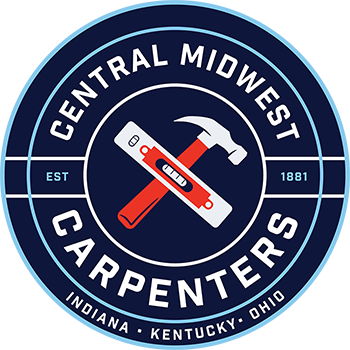NOTICIAS
HOT ITEM


Recent News
 Scholarship Winners | 2025abril 24, 2025 - 10:47 am
Scholarship Winners | 2025abril 24, 2025 - 10:47 am 2024 Indiana Kentucky Graduate Speaker – Kyle Harveymarzo 28, 2025 - 1:49 pm
2024 Indiana Kentucky Graduate Speaker – Kyle Harveymarzo 28, 2025 - 1:49 pm Military Outreach Makes Big Impactmarzo 24, 2025 - 3:29 pm
Military Outreach Makes Big Impactmarzo 24, 2025 - 3:29 pm 2025 Central Midwest Sisterhood Updatemarzo 3, 2025 - 5:13 pm
2025 Central Midwest Sisterhood Updatemarzo 3, 2025 - 5:13 pm Craft Spotlight – Justin Rogersfebrero 26, 2025 - 4:44 pm
Craft Spotlight – Justin Rogersfebrero 26, 2025 - 4:44 pm Ohio’s Newest Journey-Level Carpenters: Class of 2025febrero 25, 2025 - 12:55 pm
Ohio’s Newest Journey-Level Carpenters: Class of 2025febrero 25, 2025 - 12:55 pm Craft Spotlight – Brandon Huffmanfebrero 19, 2025 - 3:26 pm
Craft Spotlight – Brandon Huffmanfebrero 19, 2025 - 3:26 pm


TV News 8 and Central South Council Expose Payroll Fraud
/0 Comentarios/en News /por IKORCCJason Engels, EST of the Central South Regional Council, was interviewed by News 8 investigative reporter Lee Zurick for a three part series on payroll fraud. The first broadcast introduced the problem and exposed that it costs Louisiana taxpayers $250 million annually. Part 2 delved into the law-breaking scheme used on numerous prevailing-rate projects by shady contractors and the lack of meaningful enforcement. The final broadcast showed how legislation with stiff penalties was blocked by a state senator who owns a construction company that subcontracted to a company that allegedly wrongly classified its workers. Rep. Smith (D) pledged on camera to re-introduce legislation with tougher penalties, and Rep. Broadwater (R) said he’d support a task force of state agencies and district attorneys.
When asked if a business saving hundreds of thousands of dollars would stop breaking the law if they only risked a $250 or $500 fine, Jason responded, “You wouldn’t. The penalties have to be increased through legislation on these contractors to get over this slap on the wrist…..Start putting some people in jail.”
Link to the series from PayrollFraud.net “Billion dollar blue print for a taxpayer rip-off.”
State Raids Construction Site of Luxury Honolulu Mall
/0 Comentarios/en News /por IKORCCThe Ala Moana Center was raided by state investigators over charges of contractors committing payroll fraud. Investigators from state tax, labor and business departments went to the luxury mall in response to complaints from the Hawaii Construction Alliance. The Alliance is a group of trade unions that includes the Hawaii Regional Council of Carpenters.
Information on alleged improper practices was gathered by undercover informants, including a video of workers being paid in cash. Watch a news report on this raid through the Top of the News section of PayrollFraud.net.
“Workers are being paid in cash by these contractors and subcontractors which begs the question: are they filing the proper paperwork with the state?” said Tyler Dos Santos, Alliance Executive Director.
Senator Brown Reintroduces Fair Playing Field Act
/0 Comentarios/en News /por IKORCCUS Senator Brown (OH) appeared with Labor Secretary Tom Perez at a forum in Cleveland to meet with workers who have been victims of payroll fraud. They met with construction, package delivery and other workers who have been denied basic employment protections because they were misclassified as independent contractors or paid off the books.
“We should call this what it is: fraud,” said Sen. Brown. “This is unfair to workers, unfair to businesses that play by the rules, and it must stop.”
At the forum, Sen. Brown announced that he is reintroducing the Fair Playing Field Act. The bill seeks to amend the federal tax code. Previously, the Fair Playing Field Act was blocked in House and Senate committees.
Formative Years
/0 Comentarios/en News /por IKORCCThe founding of the union was a response to changing conditions in the construction industry in the second half of the 19th century. The old ways of building were disappearing as a new “modern” system emerged.
Shifts in the larger economic order transformed the daily life of the working carpenter. Facing turbulent times and an uncertain future, carpenters turned to unionism to serve their collective interests.
The carpenter in colonial America had been a man with considerable bargaining power. As one of a small number of skilled artisans in a young society eager for new houses, commercial buildings, and wooden ships, he often earned more than twice as much as his English counterpart.
The carpenter who carried his tools across the Atlantic also brought with him the European “guild system” in which the categories of workers encompassed masters, journeymen, and apprentices. Each handled the tools of the trade in a centuries-old division of work responsibilities. The rules were unwritten, but tradition held that masters looked out for the long-term welfare of journeymen and the training of apprentices, as they passed on the “art” and “mystery” of the craft to the next generation. The division between the groups was not one of permanent status, but of age, years of experience, and levels of skill.
Barring unforeseen circumstances, an apprentice who stayed with the trade could expect, in time, to become a master. To the extent that masters, journeymen, and apprentices shared a common work experience and vision of the industry, their economic interests tended to coincide. Early efforts at organization focused on stabilizing prices and reducing competition between carpenters, not employer/employee conflicts. In the 1700s, master and journeymen carpenters united in most American cities to establish “books of prices,” volumes that standardized the costs of every aspect of the carpentry trade.
As the Industrial Revolution unfolded in the United States, the guild system gave way to a capitalist set of relations in the building industry. The dramatic increase in post-Civil War construction activity outpaced the ability of the masters to meet the labor demands. The volume of building activity shot up 250 percent between 1866 and 1906, an upsurge that included wild swings of phenomenal expansion and terrifying crashes. The dizzying pace of new construction was part of a nation in change. Railroads connected once remote towns and villages. Technological innovations wiped out entire handicrafts and introduced the factory system to growing numbers of industries. The United States emerged from a sea of self-contained communities to a unified country linked by communication and transportation systems.
Mechanical inventions and new building materials altered the carpenter’s work. Factories with new machines—cut-off saws, mortising and tenoning machines, borers, compound carvers, and power sanders—enabled the mass production of items such as blinds, doors, flooring, and stairs that had been fashioned by hand. Cast-iron replaced wood beams as early as 1852 and, by the end of the century, the introduction of structural steel reinforced concrete, and the elevator laid the groundwork for the modern skyscraper.
But the industry changed in other ways as well. The opportunities for profit generated by economic growth attracted speculators and middle men with little or no attachment to the traditions of the industry. These men seized the opportunities created by escalating construction demand but remained ignorant of the issues of craft pride and quality that characterized the guild system. “Jerry” building and “botch” work were frequently the by-products of the new breed of builders who emphasized speed, productivity, and profitability.
The emergence of the contractor/businessman strained the personal connections that had existed between masters, journeymen, and apprentices. At one time, a carpenter might have worked for a single master for twenty years; by the late 1800s, he might have as many as twenty employers in one year.
At the turn of the century, Connecticut carpenter J.W. Brown looked back at the five decades of his trade. He recalled the times when his employer “felt himself under a moral obligation” to the working carpenter and his steady employment. Now, reported Brown, the carpenter had become “accustomed to look upon himself not only as a wage worker for life, but as an appendage to a monstrous machine for the production and distribution of wealth.”
McCrory orders new effort to crack down on cheating businesses
/0 Comentarios/en News /por IKORCC“When unethical employers improperly classify their employees as independent contractors, they not only put our state’s workforce at risk, but also put ethical businesses at a competitive disadvantage and rob taxpayers of significant revenues,” McCrory said.
Photo credit: The News & Observer
Source: The News & Observer